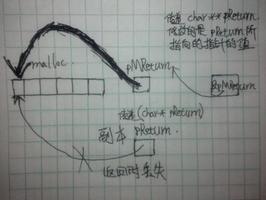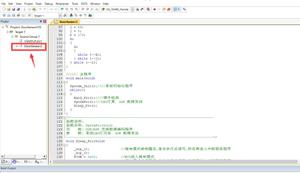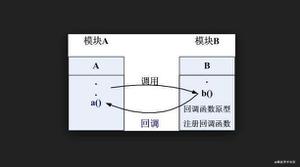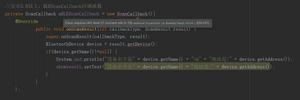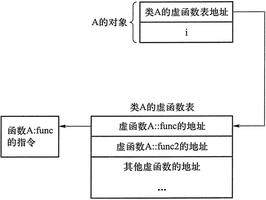C++函数指针和回调函数使用解析
函数指针是指向函数的指针变量。
通常我们说的指针变量是指向一个整型变、字符型或数组等变量,而函数指针是指向函数。
函数指针可以像一般函数一样,用于调用函数、传递参数。
函数指针变量的声明:
typedef int (*fun_ptr)(int,int); // 声明一个指向同样参数、返回值的函数指针变量
实例
以下实例声明了函数指针变量 p,指向函数 max:
#include <stdio.h>
int max(int x, int y){
return x > y ? x : y;
}
int main(void){
/* p 是函数指针 */
int (* p)(int, int) = & max; // &可以省略
int a, b, c, d;
printf("请输入三个数字:");
scanf("%d %d %d", & a, & b, & c); /* 与直接调用函数等价,d = max(max(a, b), c) */
d = p(p(a, b), c);
printf("最大的数字是: %d\n", d);
return 0;
}
#include <stdio.h>
int max(int x, int y){
return x > y ? x : y;
}
int main(void){
/* p 是函数指针 */
int (* p)(int, int) = & max; // &可以省略
int a, b, c, d;
printf("请输入三个数字:");
scanf("%d %d %d", & a, & b, & c); /* 与直接调用函数等价,d = max(max(a, b), c) */
d = p(p(a, b), c);
printf("最大的数字是: %d\n", d);
return 0;
}
编译执行,输出结果如下:
请输入三个数字:1 2 3
最大的数字是: 3
函数指针作为某个函数的参数
函数指针变量可以作为某个函数的参数来使用的,回调函数就是一个通过函数指针调用的函数。
简单讲:回调函数是由别人的函数执行时调用你实现的函数。
你到一个商店买东西,刚好你要的东西没有货,于是你在店员那里留下了你的电话,过了几天店里有货了,店员就打了你的电话,然后你接到电话后就到店里去取了货。在这个例子里,你的电话号码就叫回调函数,你把电话留给店员就叫登记回调函数,店里后来有货了叫做触发了回调关联的事件,店员给你打电话叫做调用回调函数,你到店里去取货叫做响应回调事件。
实例
实例中 populate_array 函数定义了三个参数,其中第三个参数是函数的指针,通过该函数来设置数组的值。
实例中我们定义了回调函数 getNextRandomValue,它返回一个随机值,它作为一个函数指针传递给 populate_array 函数。
populate_array 将调用 10 次回掉函数,并将回掉函数的返回值赋值给数组。
#include <stdlib.h>
#include <stdio.h>
// 回调函数void populate_array(int *array, size_t arraySize, int (*getNextValue)(void)){
for (size_t i=0; i<arraySize; i++)
array[i] = getNextValue();
}
// 获取随机值
int getNextRandomValue(void){
return rand();
}
int main(void){
int myarray[10];
populate_array(myarray, 10, getNextRandomValue);
for(int i = 0; i < 10; i++) {
printf("%d ", myarray[i]);
}
printf("\n");
return 0;
}
编译执行,输出结果如下:
1680728247524916226500739849436581144108930470211272101027544145785087814587779232007237709
以上是 C++函数指针和回调函数使用解析 的全部内容, 来源链接: utcz.com/z/312978.html

